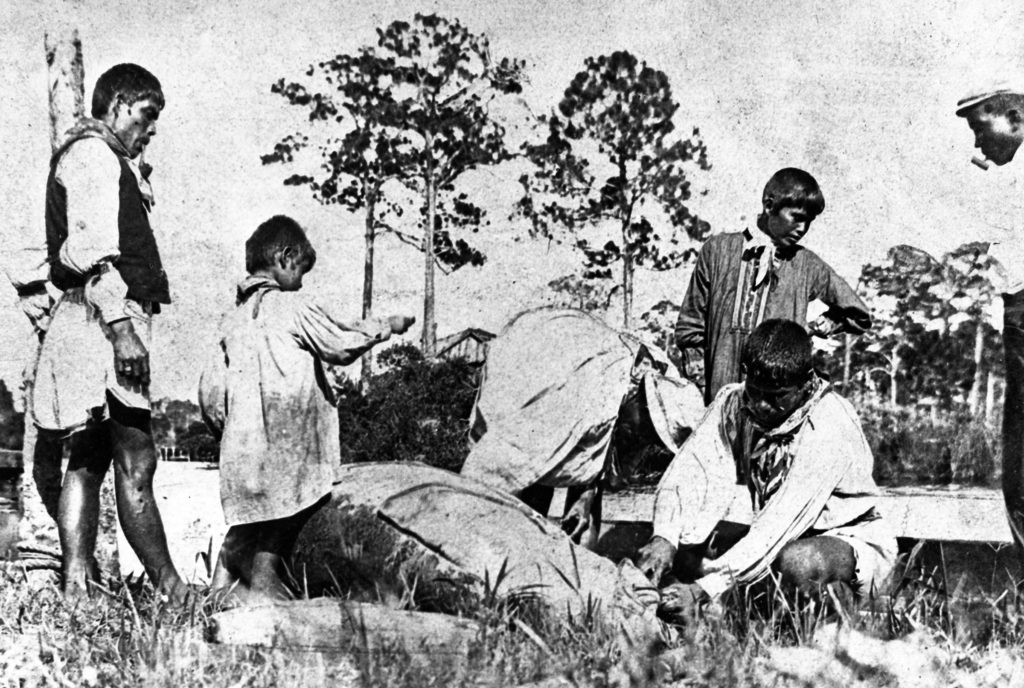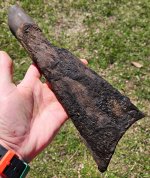Recently it’s been in the news about the manatees dying of starvation in the treasure coast area. They are blaming water quality I believe it’s sand from beach re- nourishment burying the sea grass beds. I am looking for other long time Floridians to submit documentation of the numerous sand bars that have appeared in the intracoastal waterway. Hopefully we can put an end to this wasteful boondoggle that mostly affects beaches we have no access to. And maybe find some coins and jewelry again
You are using an out of date browser. It may not display this or other websites correctly.
You should upgrade or use an alternative browser.
You should upgrade or use an alternative browser.
South FL beach Re-nourishment
- Thread starter Abacopest
- Start date
traveller777
Gold Member
- Aug 20, 2017
- 5,435
- 17,432
- Detector(s) used
- Minelab CTX 3030 & Explorer
- Primary Interest:
- All Treasure Hunting
You do not seem to be getting much of a movement going. Nice try though and maybe it will get going.Recently it’s been in the news about the manatees dying of starvation in the treasure coast area. They are blaming water quality I believe it’s sand from beach re- nourishment burying the sea grass beds. I am looking for other long time Floridians to submit documentation of the numerous sand bars that have appeared in the intracoastal waterway. Hopefully we can put an end to this wasteful boondoggle that mostly affects beaches we have no access to. And maybe find some coins and jewelry again
- Jul 27, 2006
- 48,419
- 54,770
- Detector(s) used
- Minelab_Equinox_ 800 Minelab_CTX-3030 Minelab_Excal_1000 Minelab_Sovereign_GT Minelab_Safari Minelab_ETrac Whites_Beach_Hunter_ID Fisher_1235_X
- Primary Interest:
- All Treasure Hunting
Don't think it has anything to do with the renourishment, the rivers flow into the sea and they have been renourishing beaches here for decades.
newnan man
Gold Member
The problem is mostly water pollution. Renourished Beach sand cannot get into the river. When the water gets cloudy the seagrass dies. Muck buildup also kills the grass. Another problem was the manatee was so protected it's population grew to be artificially high stressing a bad situation further. My wife grew up right on the river and said mantees were never that abundant until various groups began protecting them to the point where they were everywhere. The Indian River has been abused for decades and now it will take time & a lot of $$$ to get it back healthy. This is a multi faceted problem with several counties & cities to blame & they now have to step up and do the right thing.
Gulf Coast Pirate
Bronze Member
Well, manatees are an invasive species here in Florida....Recently it’s been in the news about the manatees dying of starvation in the treasure coast area. They are blaming water quality I believe it’s sand from beach re- nourishment burying the sea grass beds. I am looking for other long time Floridians to submit documentation of the numerous sand bars that have appeared in the intracoastal waterway. Hopefully we can put an end to this wasteful boondoggle that mostly affects beaches we have no access to. And maybe find some coins and jewelry again
traveller777
Gold Member
- Aug 20, 2017
- 5,435
- 17,432
- Detector(s) used
- Minelab CTX 3030 & Explorer
- Primary Interest:
- All Treasure Hunting
I did not know that. I am not from Florida but like to learn. I have always heard about Manatees so I will study up on them.Well, manatees are an invasive species here in Florida....
newnan man
Gold Member
I believe you are incorrect. Manatees are native to Florida and the West Indies.Well, manatees are an invasive species here in Florida....
traveller777
Gold Member
- Aug 20, 2017
- 5,435
- 17,432
- Detector(s) used
- Minelab CTX 3030 & Explorer
- Primary Interest:
- All Treasure Hunting
That is what I just read also. There is a species also native to amazon and West Africa if what I read is true. So, looks like they're widely distributed.I believe you are incorrect. Manatees are native to Florida and the West Indies.
- Feb 3, 2009
- 37,382
- 138,580
- 🥇 Banner finds
- 1
- Detector(s) used
- Deus, Deus 2, Minelab 3030, E-Trac,
- Primary Interest:
- Relic Hunting
Fun facts of the morningWell, manatees are an invasive species here in Florida....
"
Manatee Fact - Native to Florida?
One of the more persistent misconceptions appearing in "Letter to the Editor" columns and comments in response to Service proposals includes the idea that the Florida manatee is an exotic, introduced species. This is not the case.
One source of the persistent "non-native species" myth may come from a study conducted in south Florida in the 1960's. This study assessed the effectiveness of Florida manatees as a means to control exotic aquatic plants and was based on similar work conducted with Antillean manatees in Guyana. While Antillean manatees were never brought to Florida for the purposes of the study, the study generated a lot of publicity and confusion about non-native manatees, exotic plants, and Florida's manatees.
The Florida manatee is one of two sub species of the West Indian manatee. West Indian manatees are a species known to range from Brazil north to Mexico and the southeastern United States, including the Caribbean islands. This species includes two sub species, the Antillean manatee and the Florida manatee. The Antillean manatee ranges from Brazil to Mexico, including the Caribbean islands. The Florida manatee is found in the southeastern United States, with the core of its range here in Florida.
Manatees are well represented in Florida’s fossil record. Their remains date back to prehistoric times and they are one of the more common vertebrate fossils known from ancient marine deposits. Manatee remains are also found in Native American rubbish heaps in Florida, sites that pre-date the arrival of the early Spaniards. The early colonists described how these natives hunted the manatee and were quick to appreciate the intrinsic value of the species.
In the seventeenth and eighteenth centuries, papal decrees and British law sought to dictate who, when, and where these animals could be killed. In 1893, the state of Florida passed legislation that prohibited killing manatees. The West Indian manatee, including both Florida and Antillean sub species, was further protected in 1972 and 1973 with the passage of both the Federal Marine Mammal Protection Act and the Endangered Species Act, respectively. Florida followed suit, further protecting the Florida manatee through state endangered species legislation and subsequently through the Florida Manatee Sanctuary Act in 1978.
The Florida manatee is a significant part of the State's natural, cultural, and historic heritage. By continuing our work together, we can see to it that manatees are a continuing part of our heritage and our future."
traveller777
Gold Member
- Aug 20, 2017
- 5,435
- 17,432
- Detector(s) used
- Minelab CTX 3030 & Explorer
- Primary Interest:
- All Treasure Hunting
good post, pepperFun facts of the morning
"
Manatee Fact - Native to Florida?
One of the more persistent misconceptions appearing in "Letter to the Editor" columns and comments in response to Service proposals includes the idea that the Florida manatee is an exotic, introduced species. This is not the case.
One source of the persistent "non-native species" myth may come from a study conducted in south Florida in the 1960's. This study assessed the effectiveness of Florida manatees as a means to control exotic aquatic plants and was based on similar work conducted with Antillean manatees in Guyana. While Antillean manatees were never brought to Florida for the purposes of the study, the study generated a lot of publicity and confusion about non-native manatees, exotic plants, and Florida's manatees.
The Florida manatee is one of two sub species of the West Indian manatee. West Indian manatees are a species known to range from Brazil north to Mexico and the southeastern United States, including the Caribbean islands. This species includes two sub species, the Antillean manatee and the Florida manatee. The Antillean manatee ranges from Brazil to Mexico, including the Caribbean islands. The Florida manatee is found in the southeastern United States, with the core of its range here in Florida.
Manatees are well represented in Florida’s fossil record. Their remains date back to prehistoric times and they are one of the more common vertebrate fossils known from ancient marine deposits. Manatee remains are also found in Native American rubbish heaps in Florida, sites that pre-date the arrival of the early Spaniards. The early colonists described how these natives hunted the manatee and were quick to appreciate the intrinsic value of the species.
In the seventeenth and eighteenth centuries, papal decrees and British law sought to dictate who, when, and where these animals could be killed. In 1893, the state of Florida passed legislation that prohibited killing manatees. The West Indian manatee, including both Florida and Antillean sub species, was further protected in 1972 and 1973 with the passage of both the Federal Marine Mammal Protection Act and the Endangered Species Act, respectively. Florida followed suit, further protecting the Florida manatee through state endangered species legislation and subsequently through the Florida Manatee Sanctuary Act in 1978.
The Florida manatee is a significant part of the State's natural, cultural, and historic heritage. By continuing our work together, we can see to it that manatees are a continuing part of our heritage and our future."
Gulf Coast Pirate
Bronze Member
That is what the current narrative is, because Manatees have become a big tourist draw especially in places like Crystal River, just nort of me where they survive due to the discharge from the power plant.I believe you are incorrect. Manatees are native to Florida and the West Indies.
newnan man
Gold Member
My wife was born on the river 72 years ago. Manatees were present then. Blue Springs has a Manatee festival that dates back before the Civil War. They used to eat them and it was a barbecue then. I have several fossilized Manatee rib bones I collected in the Peace River that are thousands of years old. Invasive from where, when? Pepperj's post is correct.That is what the current narrative is, because Manatees have become a big tourist draw especially in places like Crystal River, just nort of me where they survive due to the discharge from the power plant.
Gulf Coast Pirate
Bronze Member
Yep. They migrate. They've been seen as far north as Massachusetts in the summer. Does that make them native to there?My wife was born on the river 72 years ago. Manatees were present then. Blue Springs has a Manatee festival that dates back before the Civil War. They used to eat them and it was a barbecue then. I have several fossilized Manatee rib bones I collected in the Peace River that are thousands of years old. Invasive from where, when? Pepperj's post is correct.
traveller777
Gold Member
- Aug 20, 2017
- 5,435
- 17,432
- Detector(s) used
- Minelab CTX 3030 & Explorer
- Primary Interest:
- All Treasure Hunting
yes. Unless man introduced them there.Yep. They migrate. They've been seen as far north as Massachusetts in the summer. Does that make them native to there?
- Jul 27, 2006
- 48,419
- 54,770
- Detector(s) used
- Minelab_Equinox_ 800 Minelab_CTX-3030 Minelab_Excal_1000 Minelab_Sovereign_GT Minelab_Safari Minelab_ETrac Whites_Beach_Hunter_ID Fisher_1235_X
- Primary Interest:
- All Treasure Hunting
I don't think I would call 15 million years invasive....LOL Manatees have been in Florida for millions of years.Well, manatees are an invasive species here in Florida....
Manatees first appeared in the shallow bays and rivers of the state about 15 million years ago, according to the Florida Fish and Wildlife Conservation Commission.
Seminoles hunted them for food, Manatee remains have been found in Native American rubbish heaps in Florida, sites that pre-date the arrival of the early Spaniards.

Manatees were once important Seminole food source • The Seminole Tribune
Recalling his younger years, Big Cypress Councilman Mondo Tiger puts it bluntly: “We were some poor people just trying to stay alive.” The time he speaks of wasn’t really that...
 seminoletribune.org
seminoletribune.org
Last edited:
Gulf Coast Pirate
Bronze Member
Those were dugong, not West Indian manatees.I don't think I would call 15 million years invasive....LOL Manatees have been in Florida for millions of years.
Manatees first appeared in the shallow bays and rivers of the state about 15 million years ago, according to the Florida Fish and Wildlife Conservation Commission.
Seminoles hunted them for food, Manatee remains have been found in Native American rubbish heaps in Florida, sites that pre-date the arrival of the early Spaniards.

Manatees were once important Seminole food source • The Seminole Tribune
Recalling his younger years, Big Cypress Councilman Mondo Tiger puts it bluntly: “We were some poor people just trying to stay alive.” The time he speaks of wasn’t really that...seminoletribune.org
- Jul 27, 2006
- 48,419
- 54,770
- Detector(s) used
- Minelab_Equinox_ 800 Minelab_CTX-3030 Minelab_Excal_1000 Minelab_Sovereign_GT Minelab_Safari Minelab_ETrac Whites_Beach_Hunter_ID Fisher_1235_X
- Primary Interest:
- All Treasure Hunting
Those were dugong, not West Indian manatees.
"West Indian manatees are a species known to range from Brazil north to Mexico and the southeastern United States, including the Caribbean islands. This species includes two subspecies, the Antillean manatee and the Florida manatee. The Antillean manatee ranges from Brazil to Mexico, including the Caribbean islands. The Florida manatee is found in the southeastern United States, with the core of its range here in Florida."
'Manatee Fact - Native to Florida?
One of the more persistent misconceptions appearing in "Letter to the Editor" columns and comments in response to Service proposals includes the idea that the Florida manatee is an exotic, introduced species. This is not the case.
One source of the persistent "non-native species" myth may come from a study conducted in south Florida in the 1960's. This study assessed the effectiveness of Florida manatees as a means to control exotic aquatic plants and was based on similar work conducted with Antillean manatees in Guyana. While Antillean manatees were never brought to Florida for the purposes of the study, the study generated a lot of publicity and confusion about non-native manatees, exotic plants, and Florida's manatees.
The Florida manatee is one of two sub species of the West Indian manatee. West Indian manatees are a species known to range from Brazil north to Mexico and the southeastern United States, including the Caribbean islands. This species includes two sub species, the Antillean manatee and the Florida manatee. The Antillean manatee ranges from Brazil to Mexico, including the Caribbean islands. The Florida manatee is found in the southeastern United States, with the core of its range here in Florida.
Manatees are well represented in Florida’s fossil record. Their remains date back to prehistoric times and they are one of the more common vertebrate fossils known from ancient marine deposits. Manatee remains are also found in Native American rubbish heaps in Florida, sites that pre-date the arrival of the early Spaniards. The early colonists described how these natives hunted the manatee and were quick to appreciate the intrinsic value of the species.
In the seventeenth and eighteenth centuries, papal decrees and British law sought to dictate who, when, and where these animals could be killed. In 1893, the state of Florida passed legislation that prohibited killing manatees. The West Indian manatee, including both Florida and Antillean sub species, was further protected in 1972 and 1973 with the passage of both the Federal Marine Mammal Protection Act and the Endangered Species Act, respectively. Florida followed suit, further protecting the Florida manatee through state endangered species legislation and subsequently through the Florida Manatee Sanctuary Act in 1978.
The Florida manatee is a significant part of the State's natural, cultural, and historic heritage. By continuing our work together, we can see to it that manatees are a continuing part of our heritage and our future."
traveller777
Gold Member
- Aug 20, 2017
- 5,435
- 17,432
- Detector(s) used
- Minelab CTX 3030 & Explorer
- Primary Interest:
- All Treasure Hunting
I started out noncommittal and just wanting to learn, but I must say the native manatee lobby has presented an over whelming argument and sources of information. I now fall into the Native Manatee Camp. To me it is time to tip our hats, saddle up our manatees, and swim off into the sunset.
Gulf Coast Pirate
Bronze Member
Those were dugong, not West Indian manatees.
I agree. It's just funny that people can post pictures of rocks and believe they're dragons and its fine, but dont believe FWC propaganda and everyone gets their panties in a wad.I started out noncommittal and just wanting to learn, but I must say the native manatee lobby has presented an over whelming argument and sources of information. I now fall into the Native Manatee Camp. To me it is time to tip our hats, saddle up our manatees, and swim off into the sunset.
traveller777
Gold Member
- Aug 20, 2017
- 5,435
- 17,432
- Detector(s) used
- Minelab CTX 3030 & Explorer
- Primary Interest:
- All Treasure Hunting
No idea what FWC propaganda is but ok. Have a great day.I agree. It's just funny that people can post pictures of rocks and believe they're dragons and its fine, but dont believe FWC propaganda and everyone gets their panties in a wad.
Top Member Reactions
-
 2605
2605 -
 1156
1156 -
 1047
1047 -
 892
892 -
 874
874 -
 848
848 -
 787
787 -
 675
675 -
 659
659 -
 642
642 -
 494
494 -
 472
472 -
 467
467 -
 465
465 -
 459
459 -
 432
432 -
 415
415 -
 408
408 -
O
401
-
 389
389
Users who are viewing this thread
Total: 2 (members: 0, guests: 2)
Latest Discussions
-
-
"GLORY DAYS" for Ol' timers thread... let's have fun & share..!
- Latest: Bucket Lister
-
-
-
-





